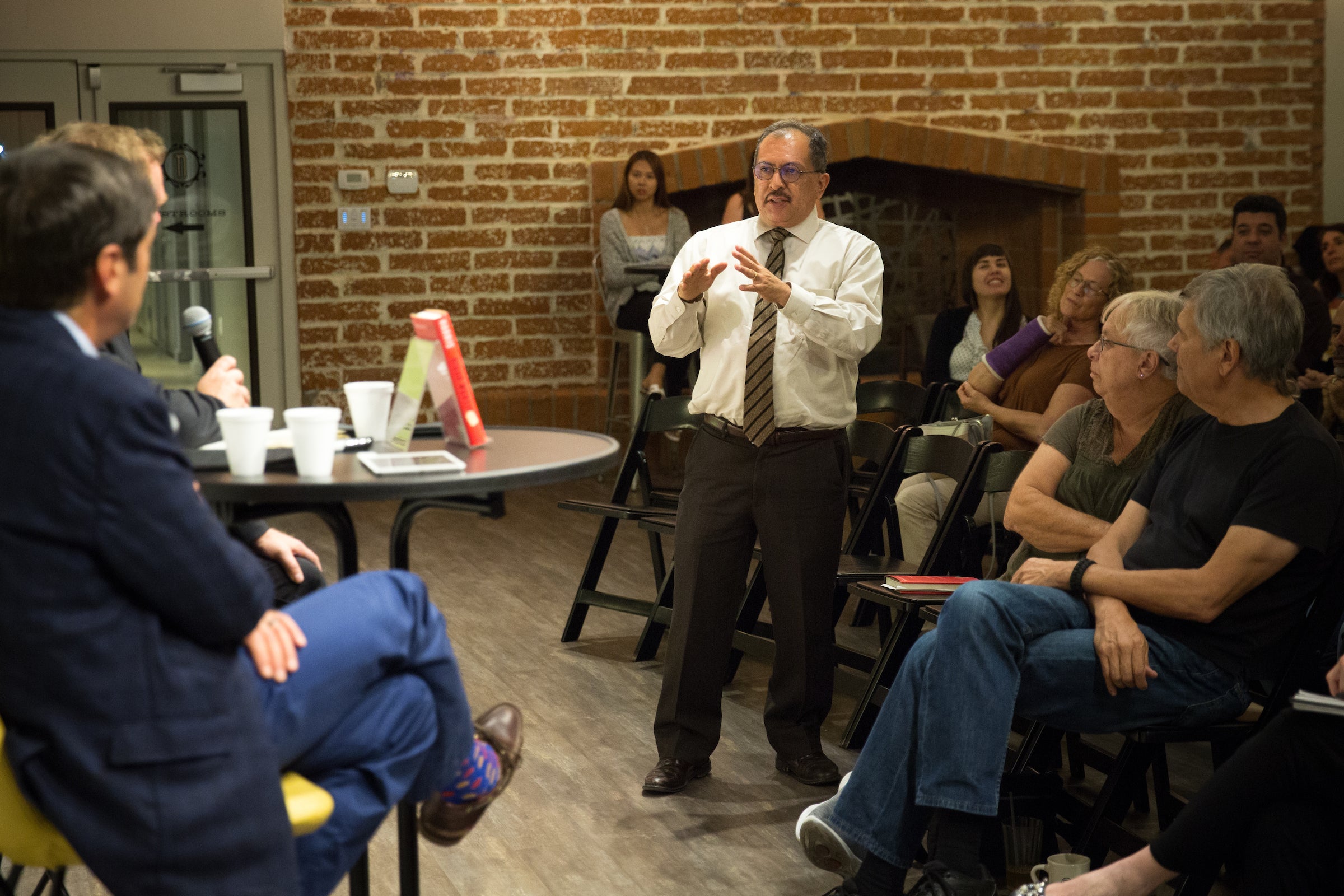In 2000, it was discovered that a breast-cancer cell line used in thousands of studies was actually a melanoma cell.
After the discovery, approximately 900 more studies were conducted — using the same cell line. The National Institutes of Health now requires all studies it funds to validate their cell lines.
National Public Radio science correspondent and author Richard Harris discussed this and other scientific debacles with Arizona State University’s Andrew Maynard in a conversation Tuesday night about Harris’ latest book, “Rigor Mortis: How Sloppy Science Creates Worthless Cures, Crushes Hope, and Wastes Billions.”
“They still get the papers out and still get tenure,” said Maynard, a professor in the School for the Future of Innovation in Society and director of the ASU Risk Innovation Lab.
“It doesn’t matter if the paper is right or wrong,” Harris said to the crowd gathered at the Changing Hands Bookstore in Phoenix. “It matters if it gets attention.”
“There’s huge pressure to get those grants,” Maynard said.
The problem lies mainly in biomedical science, and that’s usually where these kinds of errors are made — in research that affects human health, Harris pointed out.
“If you’re an astronomer and you say you’ve found an 11th planet and it turns out not to be true, it doesn’t really matter,” he said. (“I know some astronomers who would disagree with that,” Maynard interjected.)
At Changing Hands Bookstore on Tuesday evening, Tempe attorney Esteban Escobedo asks NPR correspondent Richard Harris about how the issues discussed in Harris’ new book apply to the field of space science. Photo by Anya Magnuson/ASU Now
They brought up the type of headlines that dot the news every day: “New link between pesticides and Alzheimer’s” or “Eggs are bad for you.”
Two French scientists examined 180 news stories like those and followed up on the studies. More than half of them were wrong.
“People are concerned about this,” Harris said.
Science is hard, Harris said. “They’re stepping off into the unknown,” he said. “Of course there are going to be missteps.”
However, he also pointed out that $300 million has been spent on brain-cancer research, “and we’re no closer than we were 20 or 30 years ago.”
It’s mainly a case of sloppy work or inattention to detail, he said, such as being sloppy about the choice of mice to use in a study. No one would do a study on 10 human siblings and say it applies universally, Harris said.
“As far as anyone can tell, there’s very little outright fraud,” Harris said. Scientific misconduct is “a fraction of a percent of the problem.”
How to begin fixing this? “It needs to be a society-wide conversation,” Harris concluded.
Top photo: NPR correspondent Richard Harris (left) discusses his new book with ASU Professor Andrew Maynard at Changing Hands Bookstore at an event hosted by the ASU School for the Future of Innovation in Society on Tuesday evening. Photo by Anya Magnuson/ASU Now
More Science and technology

ASU and Deca Technologies selected to lead $100M SHIELD USA project to strengthen U.S. semiconductor packaging capabilities
The National Institute of Standards and Technology — part of the U.S. Department of Commerce — announced today that it plans to award as much as $100 million to Arizona State University and Deca…

From food crops to cancer clinics: Lessons in extermination resistance
Just as crop-devouring insects evolve to resist pesticides, cancer cells can increase their lethality by developing resistance to treatment. In fact, most deaths from cancer are caused by the…

ASU professor wins NIH Director’s New Innovator Award for research linking gene function to brain structure
Life experiences alter us in many ways, including how we act and our mental and physical health. What we go through can even change how our genes work, how the instructions coded into our DNA are…

